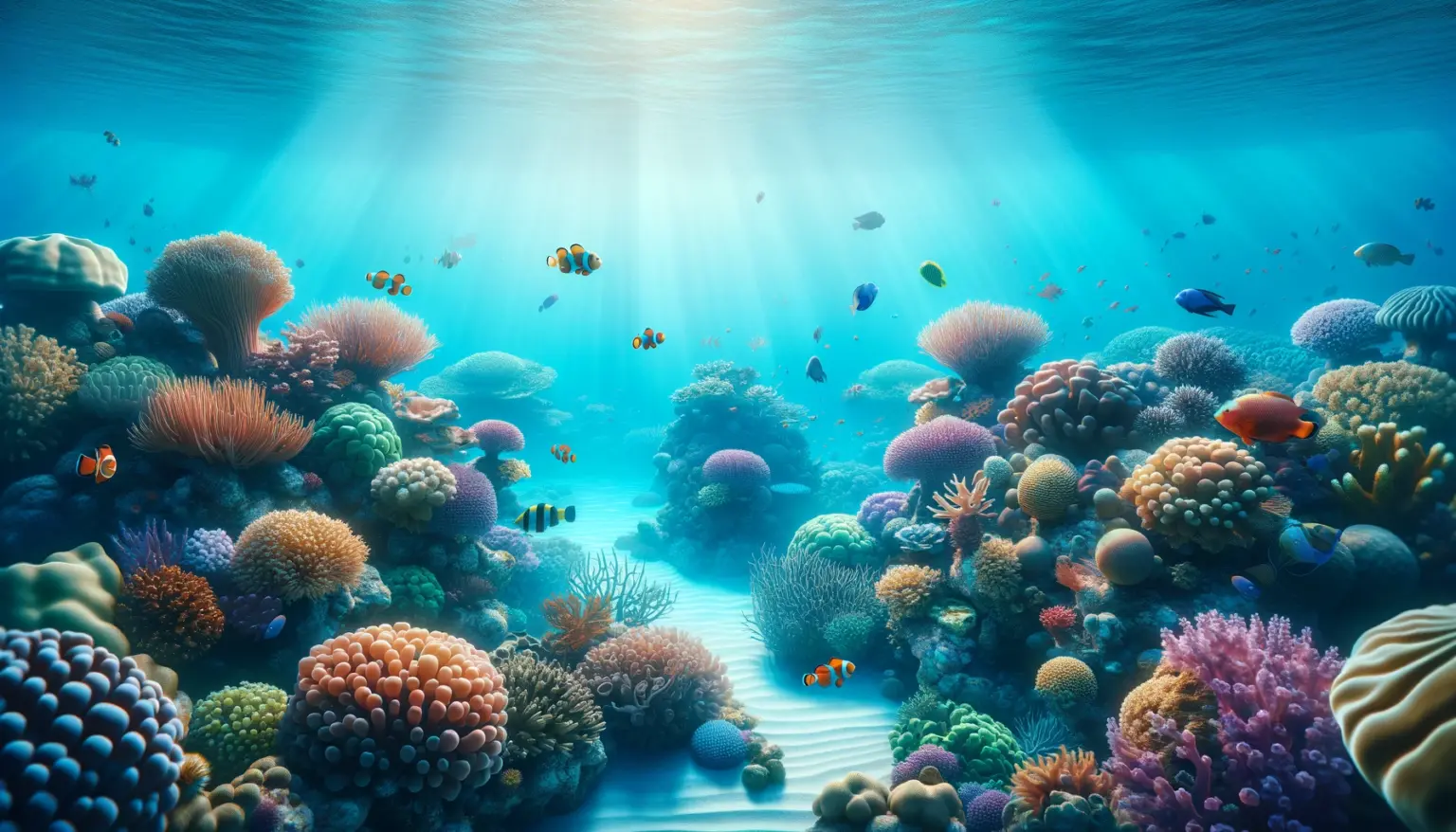World Reef Awareness Day, celebrated annually on June 1st, is a pivotal occasion dedicated to raising awareness about the crucial role of coral reefs in our planet’s health and biodiversity. These underwater ecosystems are often referred to as the rainforests of the sea due to their rich biodiversity and essential services they provide both to marine life and human communities.
Coral reefs are not only vital habitats for countless marine species but also act as natural barriers protecting coastal areas from erosion and storm surges. This article aims to highlight the significance of coral reefs, outline the threats they face, and suggest ways individuals can contribute to their conservation.
Understanding Coral Reefs
Coral reefs are complex and diverse underwater structures made primarily of coral polyps, tiny animals that live in colonies. The major types of coral reefs include fringing reefs, which are directly attached to the shore; barrier reefs, which are separated from the shore by a lagoon; and atolls, which form circular reef structures surrounding a central lagoon.
These formations take thousands of years to develop, with coral polyps secreting calcium carbonate to build the reef structure. The vibrant colors of coral reefs come from the symbiotic relationship between the corals and microscopic algae called zooxanthellae, which live within the coral tissues and provide them with nutrients through photosynthesis.
Coral reefs are home to an astonishing variety of marine life. They cover less than 1% of the ocean floor but support about 25% of all marine species, including fish, mollusks, crustaceans, and many others. This biodiversity is crucial for maintaining healthy ocean ecosystems and supporting food chains that include humans.
The Importance of Coral Reefs
Coral reefs play a pivotal role in maintaining marine biodiversity by providing habitat, food, and breeding grounds for numerous marine species. They are essential for the health of the ocean, contributing to nutrient cycling and carbon sequestration, which help mitigate climate change impacts.
Moreover, coral reefs act as natural barriers that protect coastal regions from the full force of waves, storms, and erosion, thereby safeguarding human lives and properties. This protective function is especially crucial for small island nations and coastal communities.
Coral reefs are also economically valuable, generating billions of dollars annually through tourism, fisheries, and recreational activities. They attract millions of tourists worldwide who engage in snorkeling, diving, and eco-tourism, providing significant income for local economies.
In addition to their economic value, coral reefs hold cultural significance for many indigenous and local communities who have relied on them for centuries for food, medicine, and traditional practices. Preserving coral reefs is thus essential not only for biodiversity but also for cultural heritage.
Threats to Coral Reefs
One of the most severe threats to coral reefs is climate change, which causes ocean temperatures to rise. When water temperatures become too high, corals expel the zooxanthellae living in their tissues, leading to a phenomenon known as coral bleaching. This not only causes the corals to turn white but also weakens them, making them more susceptible to disease and death.
Pollution from agricultural runoff, sewage, and plastic waste significantly impacts coral reefs. Chemicals and nutrients from fertilizers cause algal blooms that can smother corals, while plastic debris can physically damage coral structures and introduce toxins into the marine environment.
Overfishing and destructive fishing practices, such as blast fishing and the use of cyanide, further degrade coral reefs. These practices not only reduce fish populations that help maintain coral health but also physically damage the reef structures themselves.
Conservation Efforts and Success Stories
Efforts to protect and restore coral reefs are underway globally and locally. Organizations like the Coral Restoration Foundation and the Great Barrier Reef Marine Park Authority are spearheading projects to rehabilitate damaged reefs, often by growing and transplanting corals.
Marine protected areas (MPAs) are also being established to safeguard critical reef habitats from overfishing and other harmful activities. These initiatives, supported by governments, NGOs, and local communities, play a crucial role in reef conservation.
There are numerous success stories in reef restoration. For example, in Florida, the Coral Restoration Foundation has successfully grown and transplanted thousands of corals, helping to rejuvenate damaged reef areas. In the Philippines, community-based reef management programs have led to significant increases in fish populations and coral cover.
These success stories demonstrate that with concerted effort and innovative approaches, it is possible to restore and protect coral reefs, ensuring their survival for future generations.
How Individuals Can Help
Individuals can contribute to reef conservation by reducing their carbon footprint. Simple actions like using energy-efficient appliances, reducing car travel, and supporting renewable energy sources help mitigate climate change impacts on coral reefs.
Choosing sustainable seafood options and avoiding products that harm reef ecosystems, such as certain sunscreens containing harmful chemicals, can also make a significant difference. Supporting businesses that prioritize reef-friendly practices is another impactful way to help.
Participating in local beach cleanups, reducing plastic use, and advocating for policies that protect marine environments are effective ways individuals can contribute. Volunteering with or donating to organizations dedicated to reef conservation provides essential support for their initiatives.
Educating others about the importance of coral reefs and the threats they face can also help build a broader base of support for conservation efforts. Every small action counts towards a larger collective impact.
Conclusion
Coral reefs are indispensable to the health of our oceans and the well-being of countless marine species and human communities. The urgent need for their protection cannot be overstated. By raising awareness, supporting conservation efforts, and taking individual actions to reduce our impact on the environment, we can help ensure that coral reefs continue to thrive for generations to come.
On this World Reef Awareness Day, let us commit to protecting these vital ecosystems and fostering a sustainable future for our oceans.
10 Interesting Facts:
- Coral reefs cover less than 1% of the ocean floor but support 25% of all marine species.
- The Great Barrier Reef is the largest coral reef system in the world, spanning over 1,400 miles.
- Coral reefs can be found in over 100 countries and territories around the world.
- Some coral reefs have been growing for as long as 50 million years.
- Coral reefs provide habitat for more than 4,000 species of fish.
- Coral reefs protect coastlines from erosion and storm damage by absorbing wave energy.
- Coral polyps, the building blocks of reefs, are related to jellyfish and anemones.
- Coral reefs generate over $30 billion annually through tourism, fisheries, and coastal protection.
- Corals have a symbiotic relationship with zooxanthellae algae, which provide them with nutrients.
- Coral bleaching, caused by rising sea temperatures, can lead to the death of coral reefs.












Protecting our ocean’s precious ecosystems on World Reef Awareness Day. An inspiring read!
Reef awareness day
Important cause!
World Reef Awareness Day is so important. This article does a great job of highlighting the need to protect our reefs.
World Reef Awareness Day is crucial for conservation. This piece captures the significance of protecting our ocean’s precious ecosystems well. Thanks for the informative read!
The page about World Reef Awareness Day is very informative and engaging. It offers a detailed look at the importance and significance of reefs, along with some interesting facts and ways to protect our ocean’s precious ecosystems. The information is well-organized and easy to read, making it a pleasure to navigate. This site is a fantastic resource for anyone wanting to learn more about World Reef Awareness Day.
The World Reef Awareness Day page is incredibly informative and engaging. It emphasizes the importance of protecting reefs and provides practical tips for conservation. The site is filled with interesting facts and stunning images, making it a must-visit for anyone passionate about ocean conservation.
The World Reef Awareness Day page is incredibly informative and engaging. It emphasizes the importance of protecting reefs and provides practical tips for conservation. The site is filled with interesting facts and stunning images, making it a must-visit for anyone passionate about ocean conservation.